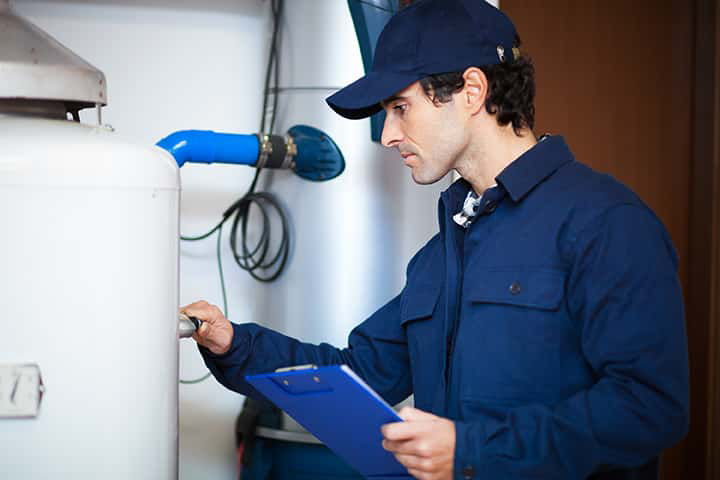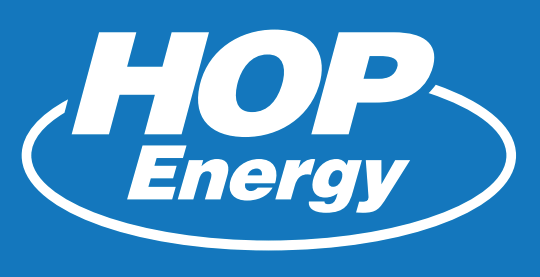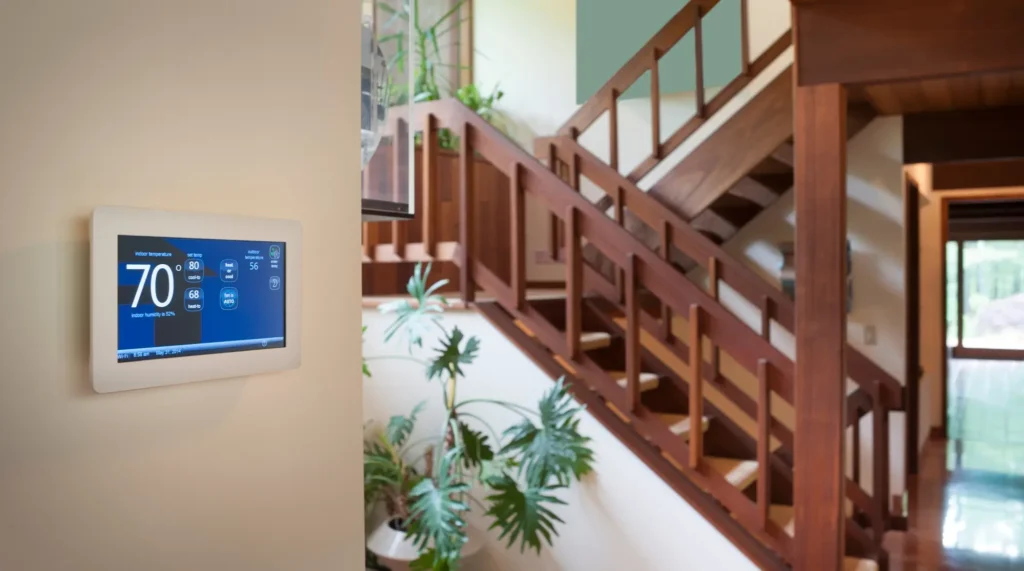Identifying a boiler or water heater is marked in the quest for a comfortable and efficient home; if not, confusion and curiosity are often sought. These are frequently used interchangeably, yet they name two different types of appliances, each pivotally necessary in domestic comfort. This article hopes to demystify these essential household fixtures and cast an eye on the often-understated superiority of boilers over their water-heating counterparts. We will analyze both functionalities, benefits, and efficiencies so that homeowners can decide on their heating needs. This series will focus on the boiler because woven into it will be the mechanics, the application, and the cost points that add up to the boiler being, in many cases, the preferable choice for heating your space and your water.
Table of Contents
What is a Boiler?
The boiler quickly heats the water before evenly distributing it either to radiators, baseboards, or an underfloor heating system, via a series of pipes. Its primary use serves the purpose of heating space, though it can heat water, which is meant for taps and showers, through an indirect tank or a combi system. Boilers can use natural gas, oil, propane, or electricity.
What is a Water Heater?
A water heater, called a water heater in most cases, is a type of home appliance specifically designed to heat and store water till required. Unlike boilers, water heaters do not contribute to space heating. They come in two main types: tank-style and tankless. The tank-type water heater stores and holds hot water to a set temperature. Still, tankless heaters heat water only as they require high-powered burners or electric elements to heat up the water quickly within the unit.
Hot Water Boiler vs Hot Water Heater
The main difference between a hot water boiler and a water heater lies in their functionalities. A hot water boiler forms part of a central heating system designed to distribute hot water specifically for heating purposes in a building—from room radiators to towel warmers. It can also supply hot water for domestic consumption when combined with a separate storage tank. Both a boiler and a tankless water heater have their functions. A tankless water heater only transfers water to sinks, showers, dishwashers, and washing machines. It does not have any role in the heating of the building.
Tankless water heaters, also known as on-demand water heaters, heat water directly without using a storage tank. When a hot tap is opened, cold water enters the unit through a pipe, and a gas burner or an electric element heats the water. This results in a constant hot water supply since the boiler complements tankless water heaters. Boilers may, however, also have a dual use in that they may be used for heating, but also they may be used in the heating of water in a special circuit for domestic purposes. This factor indicates that they are relatively cost-effective for bigger homes where the demand for hot water is extensive and must be catered to simultaneously.
Space heating is a significant factor when deciding between a tankless water heater or a boiler. When water is required to be heated and not space heating, the best and most efficient system is the tankless water heater, where hot water is distributed around the building. Boiler systems, though, remain more convenient and efficient for houses deriving benefits from the multi-function nature of boilers, like in colder climate zones where space heating is a must.
Water Heater vs. Boiler: Comparative Analysis
Energy consumption should be considered relative to the boiler compared to the water heater, considering the scope of the application. The majority of water heaters use much less energy when exclusively heating water. This is designed to heat water to a given temperature and keep it at a constant level, ready for immediate use. However, the boiler is designed to supply hot water for heating systems and household use, which could appear inefficient. But the boilers designed today are generally of a more energy-efficient type, as some of the condensing boiler models work to over 90% by capturing the heat from exhaust gases that usually escape.
Water Boiler vs Water Heater
A water boiler—is a device that heats water in applications like kitchens or offices, for example, not to be confused with either water heaters or heating boilers. On the other hand, a “water heater” refers to various devices meant for heating water to be used within a domestic setup. When comparing, the two contexts of use are important: a water boiler used for making tea or coffee works with a much smaller quantity. It is not to be compared with larger-scale water heaters or heating boilers for domestic or commercial buildings.

Is a Boiler a Water Heater?
Technically, in an application in a boiler, this heats the water to be used for domestic purposes. But being versatile, a boiler can also be utilized as a home’s central heating system. Regular water heaters do not provide this dual purpose; they only heat potable water for everyday home use. Many boilers in homes are a part of the heating system, so when installed with the right components, such as an indirect water heater or a hot water storage tank, it can well substitute for a separate water heater.
Boiler as Dual System
Boilers are dual-functional systems in the sense that they provide heat and hot water to the home. This dualistic nature streamlines the heating in a house, meaning that fewer systems are used. A boiler offers a comprehensive solution, especially in colder climates or a larger home where it is essential to keep it constantly heated. It can be even more cost-effective and space-saving than having two separate units, a heater and a boiler.
Water-Heating Functionality
Such a function can be readily incorporated into modern systems of this type by applying indirect water heaters, a kind of tank fed by a boiler and used to supply heat. This is generally a better setup than a separate tank with its own burner or elements, as it capitalizes on the boiler’s high efficiency and better insulation.
The Efficiencies and the Differences in Operation
The boilers’ operation efficiency goes beyond just the energy they turn fuel into. Most boilers run on natural gas, which can be an economical and energy-saving way to provide heat compared to the electric power required for most water heaters. Boilers also distribute heat via water, meaning they hold the heat for a longer period than air used in the forced-air system. This, therefore, means that such a system provides sustained warmth with reduced cycling, which could convert to saving energy.
Boilers have many advantages, such as being designed to last with hardy performance and improved zoning capabilities; these improvements permit better control of varied heating areas in your home. They are also less susceptible to significant temperature fluctuations affecting water heaters. Radiant heat from boilers is also friendlier than the dry air from forced-air heating systems, which is an aspect that might be of benefit to people with respiratory problems or allergies.
Assessing Efficiency in Residential Use
Boilers are efficiency champions, especially when measured for combined heating and hot water provision in residential settings. The modulating firing rate in the modern heating system will save energy through overfiring when the demand for heat is low. The modulating feature is advantageous, especially during the transitory period of seasons, when heating demands might be low.
Benefits of Hot Water Boilers
Hot water boilers have several benefits that persuade many homeowners to choose them. Instead, the warmth of the water is transferred into the house through radiators or hydronic floor systems to provide a uniform, draft-free warmth with no noise. The closed system also implies reduced dust and allergens circulating in the home, hence, better quality indoor air.
Practicality and User Friendliness
Boilers are practical and easy to use. Most modern boilers come with digital controls that make it easy to adjust temperature; some are even programmable to tune the heating schedules, improving comfort and heating efficiency. Even if necessary, they are sometimes serviced less regularly than water heaters, and sediment could build up inside and need more regular flushing.
Other Advantages of Boilers
Space-saving. In many cases, they can be wall-mounted, freeing up floor space, unlike traditional water heaters, as they don’t need a storage tank if connected to a combi system. Boilers have this aesthetic simplicity that makes integrating them within the home easy, especially when interiors are done with a minimalist or contemporary approach.
Generally, the advantages of boilers are obvious regarding efficiency and practical application, especially where space heating is necessary. In most cases, their multitasking action in giving out heat and hot water is efficient and convenient for the homeowner.
Integration of Boilers and Water Heaters
Integrating boilers with water heating systems often results in a cohesive and efficient setup. Boilers equipped with a domestic hot water coil can eliminate the need for a separate water heater. This integrated approach saves space and may reduce installation and maintenance costs. Additionally, using a boiler with an indirect water heater can be a highly efficient combination, as it utilizes the boiler’s ability to quickly heat water and the storage capacity of the indirect tank for immediate use.
Advantages of Boilers for Heating and Hot Water
Boilers are advantageous for heating and hot water applications because they provide consistent and controllable heat output. The use of thermostatic radiator valves allows for room-by-room temperature control, making it possible to heat specific home areas to the desired comfort level. This level of control is typically not possible with standard water heaters.

Energy Consumption and Cost-effectiveness
Regarding energy consumption and cost-effectiveness, boilers can be superior due to their ability to operate at lower temperatures than forced-air systems. This allows for utilizing low-grade heat sources, which can be more energy-efficient and cost-effective in the long run. Furthermore, the longevity of boiler systems often translates to fewer replacements over time compared to water heaters, which may require more frequent updates due to sediment build-up and corrosion.
Boilers as a Superior Choice
The choice of a boiler over a water heater for a household’s heating needs is supported by the boiler’s versatility, efficiency, and the quality of heat delivered. While the initial cost of a boiler system may be higher than that of a water heater, the long-term savings on energy bills, maintenance, and enhanced comfort often justify the investment.
Conclusion on Technical Insights
From a technical standpoint, boilers are a robust and multifaceted solution for space heating and domestic hot water needs. Their advanced functionality, coupled with the ability to adapt to various energy sources and heating methods, positions boilers as a generally superior choice for homeowners looking for a comprehensive heating system.
Experience the future of home heating with System 2000 Frontier® Boilers. Merging unparalleled energy efficiency with top-of-the-line heat and hot water performance, System 2000 stands out as the smart choice for homeowners. Its state-of-the-art Energy Manager control system, comprehensive warranties, and lifetime protection plan showcase a commitment to quality and customer satisfaction that is unmatched in the industry.
The choice is clear, with the potential to save over 40% on fuel bills compared to other boilers and the promise of virtually unlimited hot water. Whether you want to upgrade your current system or seek the best option for your new home, System 2000 Frontier® offers whisper-quiet operation, durability, and efficiency that outperform the competition. Don’t settle for outdated technology; embrace the boiler re-engineered for excellence. Click to learn how System 2000 can revolutionize your home’s heating and hot water experience and join the many satisfied homeowners who’ve made the switch. Click here to discover more about System 2000 Frontier® Boilers.




